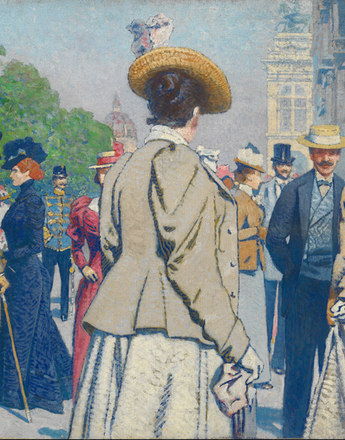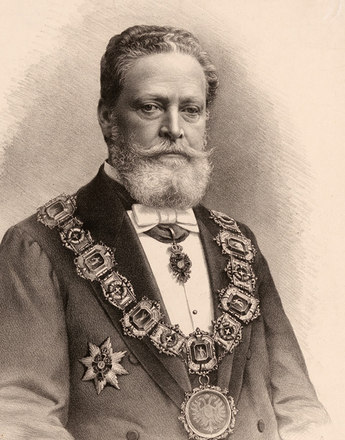After the outbreak of the First World War, which the Christian Socials regarded as an unavoidable "war of atonement", there were high hopes of a rapid victory of the Central Powers and the preservation of the status quo.
While the Christian Socials also believed in a rapid and victorious end to the war, it had reservations about Austria Hungary's relationship with its German ally. Always making every effort to avoid conflict with the population, it, too, adopted a peace policy in 1917. For the entire duration of the war, however the Christian Social Party primarily concentrated on domestic issues, its main concern being the preservation of its own electorate for fear of voters switching to the Social Democrats. For this reason, the party attempted to improve the conditions and food supply of its electors by influencing the authorities and the government.
The rise of nationalism amongst the various groups of the population forced the Christian Socials to adopt a nationality-based policy, amove that, however, was regarded amongst its own ranks as a weakening of the party's profile. It tended to be reticent on the question of concepts for the future form of the state, which was interpreted as an indication of a schism within the party. In its three-point programme, which contained the most important foreign and domestic policy positions, it set out its commitments to the Dual Monarchy and the Austro-Hungarian confederation. It adopted the 'moderate' peace policy of the Austro-Hungarian Foreign Minister Ottokar Czernin, and for this reason it supported neither an unconditional peace nor extensive territorial annexations.
After the end of the war and the collapse of the Empire, the Christian Social Party, which had banked on the re-establishment of the monarchy, was plunged into an ideological and organisational crisis, and was unable to reach a unitary party line on the question of the new form of government. In October 1918, the Christian Social parliamentary party was still resolved to support the preservation of the monarchy, and the leaders of the Viennese Christian Socials also spoke out in favour of the traditional form of government or a plebiscite on the matter. On the other hand, the deputies from the provinces, mainly of agricultural background, became more and more committed to the Republic. The differences between the Viennese Christian Socials and the representatives of the provinces dominated the further development of the party, and even after the Republic was proclaimed on 12 November 1918, there was still no agreement amongst the party members on the question of a monarchy or a republic.
Translation: David Wright
Berchtold, Klaus: Österreichische Parteiprogramme 1868-1966, Wien 1967
Ehrenpreis, Petronilla: Kriegs- und Friedensziele im Diskurs. Regierung und deutschsprachige Öffentlichkeit Österreich-Ungarns während des Ersten Weltkriegs, Innsbruck/Wien/Bozen 2005
Wandruszka, Adam: Österreichs politische Struktur. Die Entwicklung der Parteien und politischen Bewegungen, in: Benedikt, Heinrich (Hrsg.): Geschichte der Republik Österreich, Wien 1977, 289-486
-
Chapters
- Preconditions and beginnings of political participation
- On the road to political participation
- Liberalism and conservatism
- The rise and fall of liberalism
- Workers unite!
- Party of the masses
- Between a truce policy and left-wing radicalism
- Karl Lueger and the "Sausage Pot Party"
- "The Colossus of Vienna"
- Rise and fall
- Commitment to the Monarchy
- "Greater German", "Smaller German" or "German National"?
- "German and loyal, outright and true"
- "Prussian plestilence" or Habsburgophilia
- The battle for the 'national electorate'



